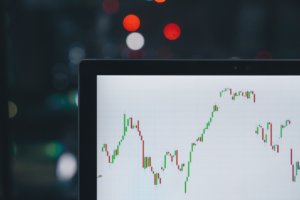NY Court denies ex-Deutsche Bank traders’ motions for acquittal or new trial
Black’s and Connolly’s communications confirmed that they understood the impact that moving LIBOR would have on counterparties.

Judge Colleen McMahon of the New York Southern District Court has dashed the hopes of former Deutsche Bank traders Matthew Connolly and Gavin Campbell Black for acquittal or a new trial in a case alleging their participation in a scheme to manipulate the London Interbank Offered Rate (LIBOR).
On Thursday, May 2, 2019, the Judge signed Decision and Order denying the defendants’ motion for judgment of acquittal or a new trial.
Connolly and Black were convicted by a jury of conspiring to commit wire fraud and bank fraud, as well as actual substantive wire fraud in connection with a scheme to cause their employer – Deutsche Bank, to submit false and fraudulent USD LIBOR submissions to the BBA. Connolly and Black then each moved for a judgment of acquittal or, in the alternative, for a new trial. On May 2, 2019, Judge Colleen McMahon nixed the motions.
In her Decision and Order, the Judge noted the heavy volume of evidence showing that Connolly and Black participated in the scheme to manipulate LIBOR. For example, in an email, Connolly requested: “If possible, we need in NY 1mo libor as low as possible next few days…tons of pays coming up overall… thanks!”. Or, for instance, a chat where Black asked: “can we have a high 6mth libor today pls gezzer?”
The Judge also stressed that the Jury heard evidence that the defendants asked Deutsche Bank submitters to change the bank’s submissions in line with their trading positions, from which jurors could easily infer that the Bank’s Libor submissions were not a true estimate of borrowing costs, but rather numbers manipulated for its financial gain. The evidence thus showed that Deutsche Bank’s LIBOR submissions were false and fraudulent statements because they did not actually reflect the conspirators’ estimates of the bank’s borrowing costs.
According to the Judge, the jury heard sufficient evidence to find that Deutsche Bank’s LIBOR submissions were fraudulent because each submission carried with it the implicit certification that it was determined according to the BBA’s rules – which is not what happened.
Further, contrary to the defendants’ assertion, the evidence at trial did not establish that LIBOR submitters were free to set their submissions within a “reasonable range” that took account of their banks’ trading positions. Importantly, the evidence showed that Deutsche Bank had a method for determining one particular rate – not a range of rates – at which it could ask and accept interbank offers for each currency and tenor, per the BBA’s definition.
The scheme to defraud was material to the BBA, as well as to Deutsche Bank’s counterparties. Black’s and Connolly’s communications confirmed that they understood the impact that moving LIBOR would have on counterparties. Black acknowledged the “sort of linkage that fixing to trillions of derivative contracts all around the world”. The Judge says that a reasonable juror could easily find from this evidence that the defendants acted consciously to benefit Deutsche Bank at the detriment of its counterparties, and thus, acted with intent to defraud. Similarly, the jury could reasonably find that neither of the defendants acted in good faith.
The Judge also discarded the defendants’ attempt to shift the blame to Deutsche Bank’s training.
“That defendants were not specifically trained not to manipulate LIBOR does not negate their fraudulent intent, any more that does the fact that others were also doing it”.









